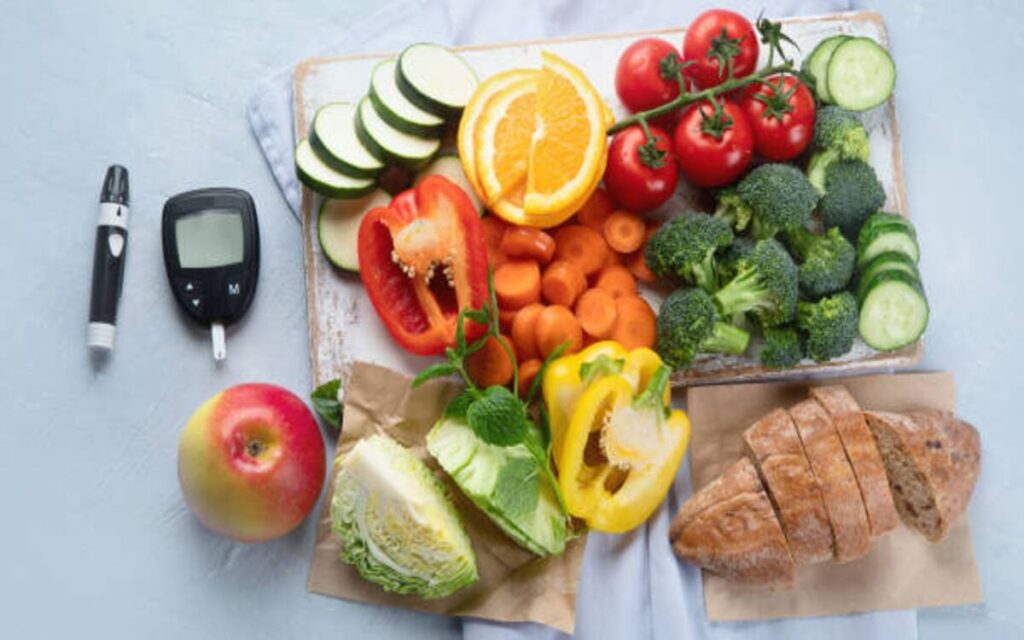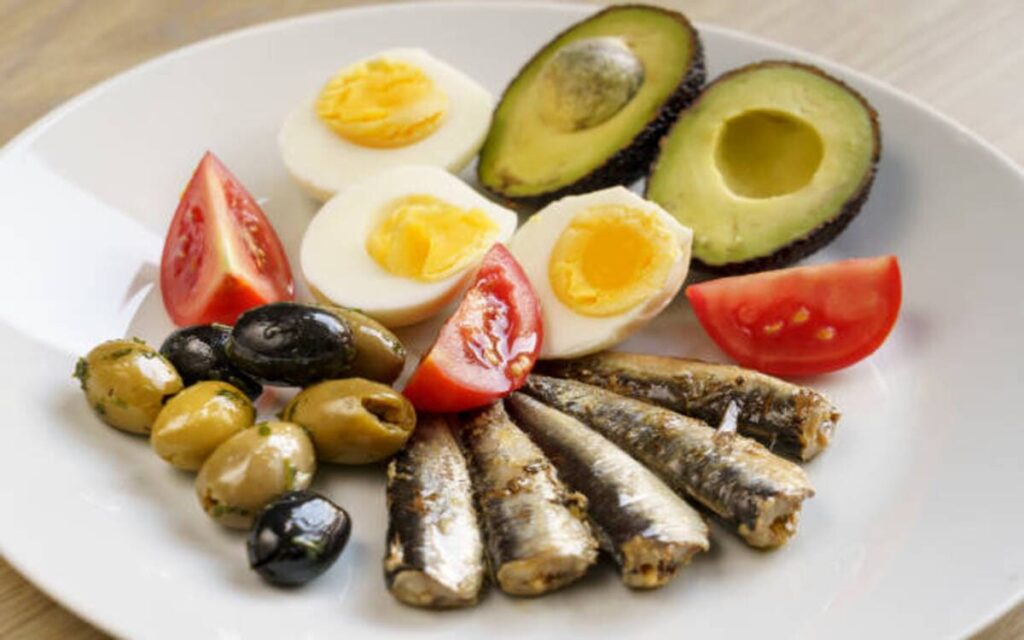10 Delicious Recipes for Type 2 Diabetes Wellness – To Take Control of Your Blood Sugar Levels
Breakfast is widely considered the most important meal of the day. For individuals living with type 2 diabetes, a nutritious and balanced breakfast is crucial for maintaining healthy blood sugar levels throughout the day.
By starting the day off right with diabetes-friendly breakfast choices, people can avoid energy crashes, glucose spikes, and other complications related to improper nutrition.
In this comprehensive guide, we will discuss the significance of making informed breakfast choices for effective type 2 diabetes management.
You will learn about the impact of breakfast on blood sugar control, how to balance carbs, proteins, and fats, as well as discover 10 nutritious and delicious breakfast recipes suitable for a diabetes-friendly diet.
Proper breakfast choices can help regulate appetite, promote satiety, and provide sustained energy levels while keeping blood sugar levels stable.
Let’s get started exploring the connection between breakfast and diabetes, and how you can make simple yet positive changes to your morning routine.
Understanding Type 2 Diabetes and Breakfast
For individuals with type 2 diabetes, there is a clear link between breakfast choices and blood sugar control throughout the day. Here are some key things to understand about breakfast and diabetes:
- Impact on Blood Sugar – Eating breakfast can help regulate blood sugar levels and insulin sensitivity. Skipping breakfast may lead to hypoglycemia as well as hyperglycemia after overeating later in the day.
- Low Glycemic Foods – Choosing low glycemic index foods that do not spike blood sugar is important. High glycemic foods like sugary cereals, fruit juices, muffins, etc. can cause unstable blood glucose.
- Balanced Nutrition – Having a good balance of carbs, protein and fat at breakfast can promote steady energy levels and avoid blood sugar crashes or spikes.
- Portion Control – Being mindful of carb portions is key. Too many carbs or calories from breakfast foods can lead to hyperglycemia.
Making smart breakfast choices grounded in nutrition science is critical for type 2 diabetes management. Keep these factors in mind as you plan your morning meals.
Recommended Article: Tired of Agonizing Sciatica? – Say Goodbye to Misery in Just 5 Minutes

Considerations for Diabetes-Friendly Breakfasts
When selecting breakfast foods for a diabetes-friendly diet, keep the following guidelines in mind:
- Add Fiber – Incorporate high-fiber foods like oats, chia seeds, avocados, berries, and whole grains. Fiber helps regulate digestion and blood sugar.
- Include Protein – Adding proteins like eggs, Greek yogurt, nut butters, and lean meats promotes satiety, sustains energy, and stabilizes blood sugar.
- Healthy Fats – Unsaturated fats from foods like avocados, nuts, seeds, and olive oil provide nutrients and prolong feelings of fullness.
- Portion Sizes – Be mindful of carb counts and calories. Stick to single servings and measure foods to understand true portion sizes.
- Drink Water – Stay hydrated by drinking water, unsweetened coffee/tea, sparkling water, etc. Limit fruit juices and sweetened beverages.
- Meal Timing – Eat breakfast within 1-2 hours of waking up to fuel your body and regulate blood sugar early. Don’t skip breakfast.
Making balanced nutritional choices centered on fiber, lean protein, and healthy fats is key to maintaining optimal blood sugar levels all morning.
10 Breakfast Recipes for Type 2 Diabetes
Now let’s explore 10 nutritious and delicious breakfast recipes that are perfect for managing type 2 diabetes:
1. Whole Grain Toast with Peanut Butter and Fruit
- Ingredients: Whole grain bread, natural peanut butter, sliced banana or berries
- Instructions: Toast bread. Spread peanut butter on toast. Top with sliced fruit.
- Nutrition: Fiber, protein, potassium, healthy fats
2. Oatmeal with Berries and Nuts
- Ingredients: Rolled oats, berries, walnuts, cinnamon, almond milk
- Instructions: Cook oats in milk. Top with berries and walnuts. Sprinkle cinnamon.
- Nutrition: Complex carbs, fiber, antioxidants, protein
3. Veggie Scrambled Eggs
- Ingredients: Eggs, spinach, tomatoes, onion, feta cheese
- Instructions: Whisk eggs. Cook eggs scrambled with veggies in skillet. Top with feta.
- Nutrition: Protein, fiber, vitamins A, C, and K
4. Greek Yogurt Parfait
- Ingredients: Greek yogurt, fresh berries, chopped nuts, chia seeds
- Instructions: Layer yogurt, berries, nuts and chia seeds in a jar or bowls.
- Nutrition: Protein, calcium, fiber, probiotics
5. Avocado Toast
- Ingredients: Whole wheat bread, mashed avocado, everything bagel seasoning
- Instructions: Toast bread. Mash avocado on toast. Sprinkle with seasoning.
- Nutrition: Healthy fats, fiber, folate, vitamin K
6. Breakfast Burrito
- Ingredients: Whole wheat tortilla, eggs, black beans, salsa, avocado
- Instructions: Scramble eggs and beans. Place in tortilla with salsa and avocado.
- Nutrition: Protein, fiber, healthy fats, vitamins and minerals
7. Cottage Cheese and Fruit
- Ingredients: Low-fat cottage cheese, apple slices, cinnamon
- Instructions: Top cottage cheese with apple slices. Sprinkle with cinnamon.
- Nutrition: Protein, calcium, fiber, vitamin C
8. Nut Butter Banana Smoothie
- Ingredients: Banana, peanut butter, almond milk, ice
- Instructions: Blend all ingredients together until smooth.
- Nutrition: Protein, fiber, potassium, healthy fats
9. Veggie Frittata
- Ingredients: Eggs, spinach, mushrooms, onions, tomato
- Instructions: Whisk eggs with vegetables. Bake in oven until set.
- Nutrition: Protein, fiber, vitamins A, C, K
10. Overnight Oats
- Ingredients: Rolled oats, chia seeds, almond milk, cinnamon
- Instructions: Mix together and refrigerate overnight.
- Nutrition: Fiber, protein, healthy fats, vitamin C
Also Read: New Gluco Savior “Sugar Hack” Secretly Reverses Diabetes
Tips for Balancing Your Breakfast
Here are some helpful tips to create balanced, nutritious breakfasts for managing type 2 diabetes:
- Include lean protein like eggs, Greek yogurt, nut butters to help regulate blood sugar.
- Add fiber-rich foods like berries, whole grains, avocado for sustained energy.
- Incorporate healthy fats from foods like nuts, seeds, olive oil to prolong satiety.
- Watch carb portions and opt for complex, low-glycemic carbs when possible.
- Choose whole grain options like whole wheat breads, oats, quinoa instead of refined grains.
- Drink more water and limit fruit juices, sweetened drinks, and caffeine.
- Measure portion sizes to understand the nutrition breakdown of your breakfast.
- Don’t skip breakfast to help control hunger and blood sugar levels.
Making balanced nutritional choices is key to keeping blood glucose levels steady throughout the morning.

Should You Skip Breakfast with Diabetes?
For individuals with diabetes, skipping breakfast is generally not recommended. Going too long without food can lead to hypoglycemia, while incorrect portion sizes from delayed eating can trigger hyperglycemia after meals. Here’s why breakfast matters:
- Avoid Blood Sugar Crashes – Eating breakfast prevents hypoglycemia which can happen after prolonged periods without food.
- Control Appetite – Breakfast provides satiety to avoid overeating later. Skipping breakfast can lead to poor portion control.
- Stabilize Blood Sugar – Eating breakfast lessens large spikes in blood sugar compared to going without food all morning.
- Improve Energy – Breakfast foods with fiber, protein and healthy fats provide steady energy levels throughout the morning.
For optimal diabetes management, make sure to fuel your body first thing in the morning. Work with a registered dietitian or diabetes educator for personalized breakfast recommendations.
Sample Weekly Meal Plan
To give you some breakfast inspiration, here is a sample weekly meal plan with diabetes-friendly breakfast ideas:
Monday:
- Veggie scrambled eggs
- Whole grain toast
- Fresh fruit
Tuesday:
- Overnight oats
- Almonds
- Unsweetened almond milk
Wednesday:
- Greek yogurt parfait
- Berries
- Chia seeds
Thursday:
- Breakfast burrito
- Vegetables
- Salsa
Friday:
- Nut butter banana smoothie
- Hard boiled egg
Saturday:
- Avocado toast
- Poached egg
- Tomato slices
Sunday:
- Veggie frittata
- Whole grain toast
- Fresh fruit
Mix and match these delicious options for breakfast variety all week long!
Recommended Article: Advanced Nerve Support – Life-Changing Neuropathy Formula
Conclusion
Eating a balanced, diabetes-friendly breakfast is one of the best ways to maintain healthy blood sugar levels each day. By understanding how different nutrition components impact blood glucose, and making informed choices about fiber, protein, carbs and portion sizes, you can assemble nutritious breakfasts tailored to your unique needs and tastes.
Use the 10 recipes and tips provided in this guide as a starter blueprint for creating satisfying breakfasts that will sustain your energy, appetite and metabolic health all morning long.
Consult with a registered dietitian or certified diabetes educator for personalized meal planning strategies as well. With the right breakfast choices to balance your blood sugar, you can take control each day starting with your morning meal.

FAQs
What should I avoid for breakfast if I have diabetes?
Avoid high sugar foods like pastries, sugary cereals, fruit juices and smoothies. Also limit processed meats, refined grains and saturated fats.
Do I need to eat breakfast every day if I have diabetes?
Yes, skipping breakfast can lead to blood sugar crashes or spikes. Eat breakfast daily to control hunger and blood sugar.
How many carbs should I aim for at breakfast?
Carb needs vary, but generally 15-30g of carbs is recommended for diabetes-friendly breakfasts.
What are good substitutions if I don’t like typical breakfast foods?
Try a veggie-packed omelet, lentil soup, hummus and veggie wrap, leftovers or chia pudding.
What are some good on-the-go breakfast options?
Good portable options include a hard boiled egg and fruit, Greek yogurt with nuts, protein bar with <15g carbs or peanut butter on whole grain toast.
Should I check my blood sugar levels before and after breakfast?
Checking blood glucose before and 1-2 hours after meals can help you assess your body’s response to different breakfasts.
How can I make my breakfast more filling if I get hungry later?
Boost fiber, protein and healthy fats. Pair carbs with proteins like yogurt with oats or eggs with whole grain toast.
How do I know if my breakfast is balanced and nutritious?
Aim for fiber, protein, healthy fats and complex carbs. Limit sweets, sugars and refined grains. A registered dietitian can provide guidance.
References
- American Diabetes Association. “Create Your Plate.” https://www.diabetes.org/healthy-living/recipes-nutrition/planning-meals/create-your-plate
- Mayo Clinic. “Type 2 diabetes – Diagnosis and treatment.” https://www.mayoclinic.org/diseases-conditions/type-2-diabetes/diagnosis-treatment/drc-20351199
- Joslin Diabetes Center. “How does breakfast impact blood sugar in diabetes?” https://www.joslin.org/info/how-does-breakfast-impact-blood-sugar-in-diabetes.html
- Centers for Disease Control and Prevention. “Carbohydrates.” https://www.cdc.gov/diabetes/managing/eat-well/carbohydrate.html
- Cleveland Clinic. “Not Hungry in the Morning? Here Are 10 Easy Breakfast Ideas.” https://health.clevelandclinic.org/not-hungry-in-the-morning/





